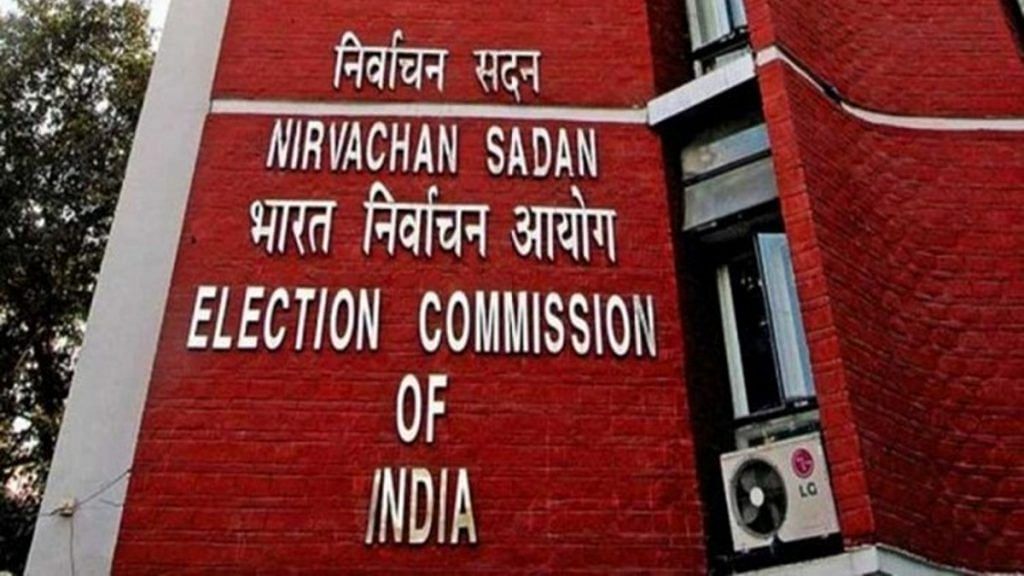New Delhi: The Election Commission of India (ECI) has sought a response from all recognised political parties on a proposal requiring them to furnish details of the “financial implications” of promises made in election manifestos and “ways and means” to finance them.
This move comes close on the heels of a raging debate over “freebies” triggered by Prime Minister Narendra Modi’s “revdi culture” remark earlier this year and a petition before a three-judge bench of the Supreme Court challenging promises of “irrational freebies” by political parties.
In a letter to political parties dated 4 October, the ECI said it plans to make it mandatory for parties to inform voters about the “financial ramifications” of poll promises against well-defined parameters. According to the letter, the proposal aims to assess the feasibility of “implementation of such promises within the financial space available”.
“For the facilitation of the political parties and to eliminate any ambiguity, the commission proposes to prescribe a proforma for the recognised national and state political parties for furnishing of details of financial implications of promises made in the election manifesto and the ways and means to finance them,” said the letter.
Political parties have been asked to convey their views to the commission by 19 October.
The letter went on to add that while the ECI “agrees in principle” with the point of view that the framing of manifestos is the right of political parties, it “cannot overlook the undesirable impact” of some of the promises on the conduct of free and fair elections.
The letter, however, made no mention of any specific party or poll promise.
It acknowledged that existing guidelines under the Model Code of Conduct require political parties and candidates to explain the rationale for poll promises and the means to finance them. However, the letter said the ECI had found that, in practice, such “declarations are quite routine, ambiguous and do not provide adequate information to voters to exercise informed choice in an election”.
Even these declarations, said the commission, are “not submitted by most of the political parties in time”.
The ECI also said that “consequences of inadequate disclosures by political parties get attenuated by the fact that elections are held frequently, providing opportunities for political parties to indulge in competitive electoral promises, particularly in multi-phase elections, without having to spell out their financial implications more particularly on committed expenditure”.
“While the commission is agnostic to the nature of promises, the need to frame disclosure requirements to enable healthy debate on the financial implications of implementing those promises both in the immediate future and for the long-term fiscal sustainability is imperative for facilitating the conduct of free and fair elections,” the letter said.
The debate over ‘freebies’ got a new lease of life after Modi, at a public meeting on 16 July this year, cautioned voters against what he termed “revdi culture” — offering “freebies” to get votes. Revdi is a sweetmeat made of sesame and jaggery that is popular in northern India, especially in the winter season.
Modi’s remarks drew sharp criticism from opposition parties who alleged that several schemes of the Bharatiya Janata Party (BJP) could be classified under this category. Delhi Chief Minister Arvind Kejriwal, national convener of the Aam Aadmi Party (AAP) — looking to give BJP a tough fight in the poll-bound states of Gujarat and Himachal Pradesh — adopted a particularly aggressive strategy by countering the PM’s remarks through the prism of freebies vs welfare.
(Edited by Amrtansh Arora)
Also Read: Ghost addresses, empty offices — the shadowy world of registered unrecognised political parties
